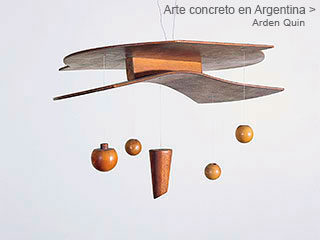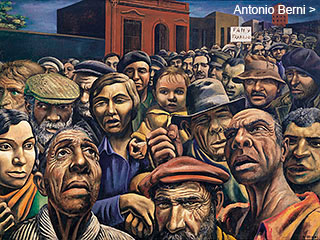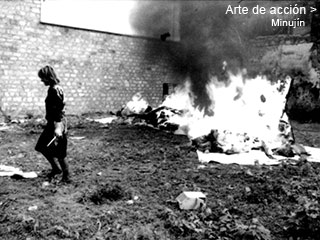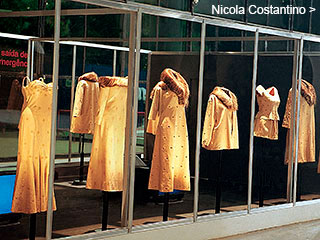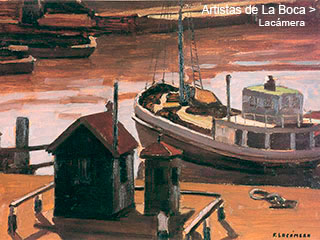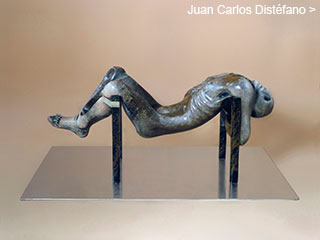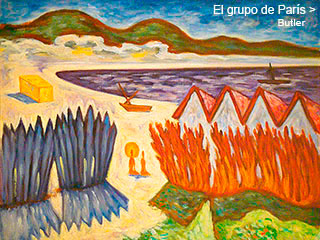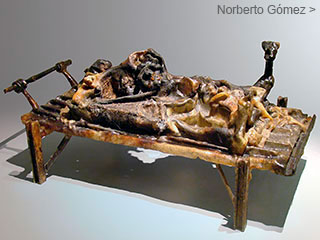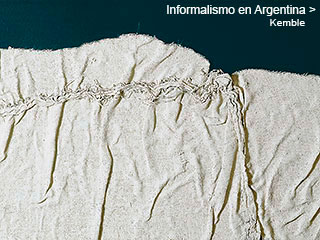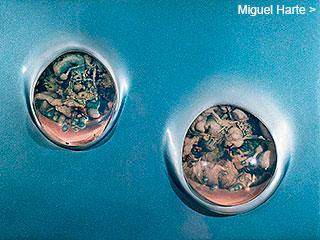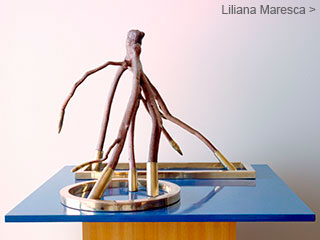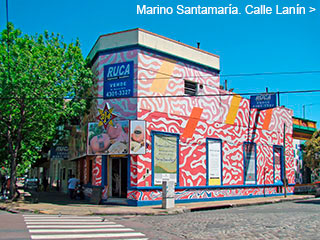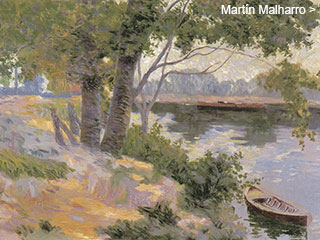Menú
Algunos dossiers
Concrete Art
in Argentina
in Argentina
by
Adriana Lauria
January 2003
January 2003
Abstraction asserted itself in Argentina through the achievements of groups such as Arte Concreto-Invención, Madí and Perceptismo, which developed their activity since the second half of the 1940s. These groups constituted the first organized national avant-garde and made their aesthetics known to the public through exhibitions, magazines, manifestoes, leaflets, lectures, etc.
Documents
Edgard Bayley
Edgard Bayley. “On Poetic Invention”, in Arte Concreto-Invención magazine. Buenos Aires, August 1946, No. 1,
p. 13.
p. 13.
The invented concept, which is the new poetry’s base, represents one of the ways of revolutionary praxis. Through his invention, the poet integrates himself to the world; that is to say, he takes an active part in the theoretical-practical task of transforming it.
What today proves to be inefficient, in the old aesthetics, is the attempt to relate the poem to determined objects, to endow it with a logical significance.
Poetry lives out of a relation with the whole of the world, not with a part of it.
Last years poetical experiences have allowed to learn about some manners of man’s creative activity that had remained, so far, mixed up with other functions, especially those of communication or expression.
Such experiences have opened the way to the Inventionist aesthetical conception.
A poem must constitute a feat.
Living the poem as an event in our mental life, not as a representation in which we are mere spectators.
The Surrealistic technique, due to its descriptive nature, frequently lays poems according to realities bizarre to them. It does not build a poetic reality (a combination of invented concepts), taking instead the surrealistic fact and restricting itself to describe that fact.
Poets no longer sing parcels of the world, for they have understood their job does not consist of the mere enunciation of objects, but of a more essential matter, which is generating in each man a poetic relationship with the totality of things and of situations.
There is a historical development of poetic forms, which we can explain in connection with social and economic changes, but there is also a function of poetry that has been performed through most different creation styles, and which nature it is wise to define.
Because of that function, far more than because of the subject or the anecdote, the poetic work has become a form of knowledge and of life; it has established mental relationships with the world and has sustained the creating joy in the human adventure.
The Inventionist poetry pursues a familiarity with the unknown.


